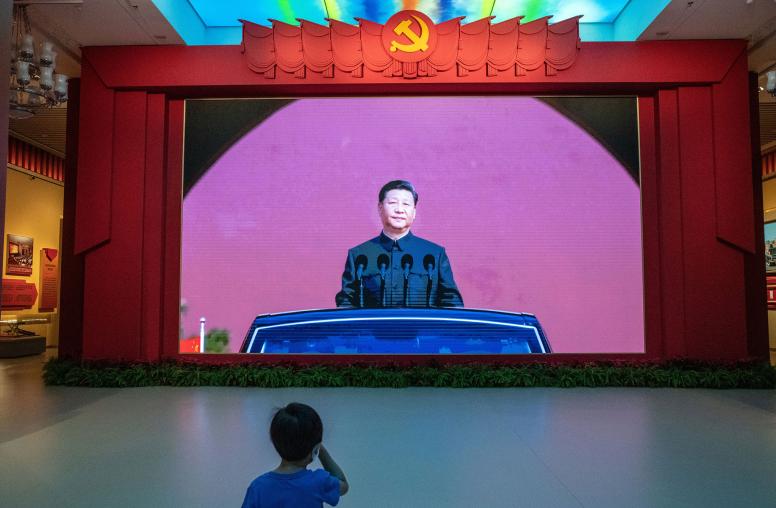Research & Analysis
U.S. Institute of Peace’s articles, reports, tools and other features provide policy analysis, research findings, and practitioner guides. These publications examine critical conflict issues at the center of the Institute’s work to prevent and resolve violent conflict.
The views expressed in these publications are those of the author(s).

The 2022 Pelosi Visit to Taiwan: Assessing US-China Signaling and Action-Reaction Dynamics
In recent years, the United States and the People’s Republic of China (PRC) have found it particularly challenging to interpret one another’s foreign policy signals. Misinterpretation of each other’s signaling may contribute to a bilateral action-reaction dynamic and can intensify into an action-reaction cycle and escalation spiral.

What the DRC-Rwanda Peace Deal Means for the U.S. and Africa’s Mineral-Rich Great Lakes Region
Last Friday, the foreign ministers of Rwanda and the Democratic Republic of the Congo (DRC) met in Washington to sign an agreement to end 30 years of conflict in Africa’s Great Lakes region. The peace deal was accompanied by commitments to build a “regional economic integration framework” and promises of U.S. investment in eastern DRC’s abundant critical mineral reserves, among other commercial agreements.

With Cease-fire Holding, Can Israel and Iran Move Toward De-escalation?
Israel’s stunning and sophisticated June 13 attack on Iran set off a worrying 12-day escalatory spiral. Iran responded in short order with ballistic missile and drone strikes, which led to a series of tit-for-tat exchanges between the two sides. A cease-fire is now in place -- but will it hold?

Philippines: Former Combatants Help Keep the Peace During Recent Polls
By: Haroro Ingram, Country Director, Philippines, USIP
For decades, the struggle for peace in the Philippines’ southernmost island of Mindanao has been characterized by armed conflict between the Philippines government and Moro separatist groups, like the Moro Islamic Liberation Front (MILF), and cycles of failed peace processes. The historic 2014 peace agreement between the Philippines government and MILF led to the granting of greater self-governance with the creation of the Bangsamoro Autonomous Region in Muslim Mindanao (BARMM) five years later. What has followed since is an unprecedented, yet very fragile, period of peace and stability.

What Are the Limits of U.S.-India Security Burden-Sharing in the Indian Ocean?
By: Nilanthi Samaranayake, Adjunct Fellow, East-West Center
When viewing U.S. partnerships in the maritime domain, relations with India, in particular, have thrived — especially over the past decade. Moreover, the partnership enjoys bipartisan support in the United States. Indications after Prime Minister Narendra Modi’s visit to the White House in February 2025 are that U.S.-India security relations will continue to be strong in the second Trump administration.

What’s at Stake for China in the Iran War?
China has major energy and economic interests that are threatened by an escalating conflict. But Beijing may also see some strategic opportunities with the U.S. focused on the war. Ultimately, China is likely unwilling, and unable, to make a serious effort to broker peace.

The Element of Surprise: Space and Cyber Warfare in U.S.-China Rivalry
The 2024 revelations over China’s effort to implant malware in critical U.S. infrastructure by the Volt Typhoon hacking group — as well as the Salt Typhoon group’s successful breaching of at least nine major U.S. telecoms — have renewed concern over Beijing’s constant, ongoing efforts to hack Western companies, governments and non-governmental organizations. Unlike past incidents, like those involving Chinese military unit 61398, which were largely about cyber espionage, the Volt Typhoon group was actively implanting malware designed to disrupt critical infrastructure such as water and power systems.

How Vulnerable Is India to Chinese Economic Coercion?
By: Sushant Singh
While India has taken a strong security stance against China, its economic posture has been cooperative. But India's reliance on Chinese imports may undermine its role as a counterbalance to China. The U.S. can help India serve as a counterweight to China by supporting Delhi’s de-risking efforts.

Pursuing Stable Coexistence: A Reorientation of U.S. Policy Toward North Korea
It is now clear that applying pressure does not lead to North Korean restraint; rather, it fuels North Korean provocations. The United States and its allies should instead seek stable coexistence with Pyongyang as an overarching goal.

The Perils of a Cold War Analogy for Today’s U.S.-China Rivalry
In the new era of great power rivalry between the United States and the People’s Republic of China (hereafter “China”), the paradigm of strategic competition has become popular. In looking to make sense of the present global geopolitical moment and paradigm, pundits search for a relevant historical analogy.